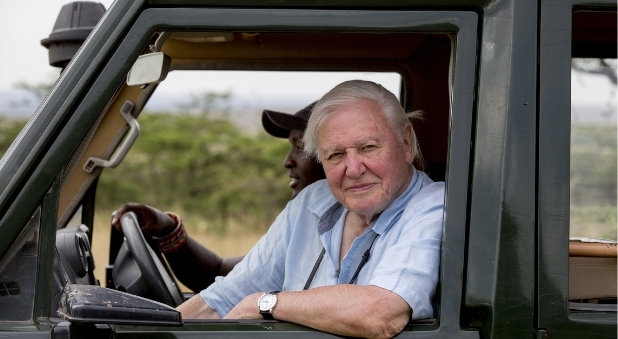David Attenborough: A Life On Our Planet
In cinemas until October 4*, then streaming on Netflix
There are few people, if any, who have seen more of the world than Sir David Attenborough. And there probably isn’t anyone – alive or dead – who has explored the planet over such a breadth of time, given that he has been making documentaries for more than 65 years.
And that is really the reason for this film. Attenborough is genuinely beloved and respected across the globe as a broadcaster and naturalist; his programs eagerly awaited, his audience vast. So, in A Life On Our Planet he takes this lifetime of knowledge and experience, grabs the documentary megaphone and lets rip.
The result is very hard to ignore. Attenborough, who has celebrated his 94th birthday since the film was made, calls it his “witness statement”: his response to a life lived in observation and celebration of the natural world.
However, most helpfully, he isn’t just telling us what he has seen – although he does do that in a very powerful manner. He talks about what it means and how he thinks we should respond. I say, “we”, because it’s a film directed at everyone, of any age, in any nation.
And while we might disagree with his conclusions, his references to evolution or even his whole premise, Attenborough comes to A Life On Our Planet armed with a whole battery of detail and carefully considered examples to back up his argument.
The film unexpectedly begins in the deserted city of Pripyat in the Ukraine. Never heard of it? That’s because its main reason for existence – and the reason it was abandoned – is the nearby Chernobyl nuclear power plant. The 1986 accident at Chernobyl, which made Pripyat one of the most damaged places on earth, caused its 50,000 residents to flee their homes forever within two days of the blast.
As an example of what humanity has done to the planet, it’s unarguable. However, Attenborough’s purpose as he talks about Pripyat is one of illustration: to equate what happened so rapidly there with the effect of our poor choices and planning on the rest of the globe.
Attenborough [speaks] with the authority of someone who literally has been everywhere and seen it first-hand.
We all, he says, “rely entirely on this finely tuned biodiversity machine” (ie. the planet) but, slowly and insidiously, we are turning it into a place in which plants, animals – and eventually we – cannot survive.
Attenborough spends the first part of the film showing how the world and its “wild places” have altered during his lifetime, speaking with the authority of someone who literally has been everywhere and seen it first-hand. He is not alarmist or unreasonable, nor does he exaggerate for effect. He tracks changes in population, in pollution, in overfishing and deforestation, in seasonal rhythms and in diversity, driving his point home with scientific efficiency.
We see filmed snippets from throughout his long career, filling our screen with all that is beautiful and wondrous in creation. His gentle, familiar voice is soft and sad as he tells us how vulnerable this species or ecosystem has become, how endangered that forest or its creatures are – not just because he loves all these things and wants us to save them, but because this planet and its capacities are not limitless.
This is something we know – even if it’s simply that resources such as coal are finite. And whether we agree with Attenborough or not, his argument that we should stop being such ruthless “predators” is a good one, and well argued.
One example he gives, of the two-thirds destruction of Borneo’s orang-utan habitat solely in the years he has been on our screens, is pretty depressing. But there’s plenty more where that came from.
To be clear, Attenborough’s purpose isn’t to tell us off like naughty schoolchildren. It’s to push us into action. After presenting us with his lifetime’s worth of humanity’s destruction, mismanagement and greed – and what he believes the inevitable end point of such choices is – he then begins to show how, and in what ways, the ship can slowly be turned around.
Again, this is not done in a pie-in-the-sky way. It is practical, based on what different nations or people groups have done to restore everything from fish stocks to forests, and farm in a low-tech, low-impact manner. It’s sensible and, potentially, achievable.
Will anyone listen? I don’t know. But if Attenborough’s long life has taught him anything, it’s that standing by and watching can be pretty painful. I doubt whether many of us are as urgent in our need to share the gospel and save people’s souls as he is in urging us to save the planet, and that should give us pause.
He’s not a believer in Jesus but he loves God’s earth, and what he does believe with all his heart is that we are destroying it. And, as he won’t be around to see whether we respond to his clarion call or not, his passionate plea is entirely selfless.
People across the globe have listened to and learned from David Attenborough since 1954, so it’s up to us to decide whether to listen to him about this, his view on the future of our planet.
* Cinemas will show a half-hour conversation between Sir David Attenbororough and fellow adventurer, Sir Michael Palin, after each screening of A Life On Our Planet. This will not be available on Netflix.






















